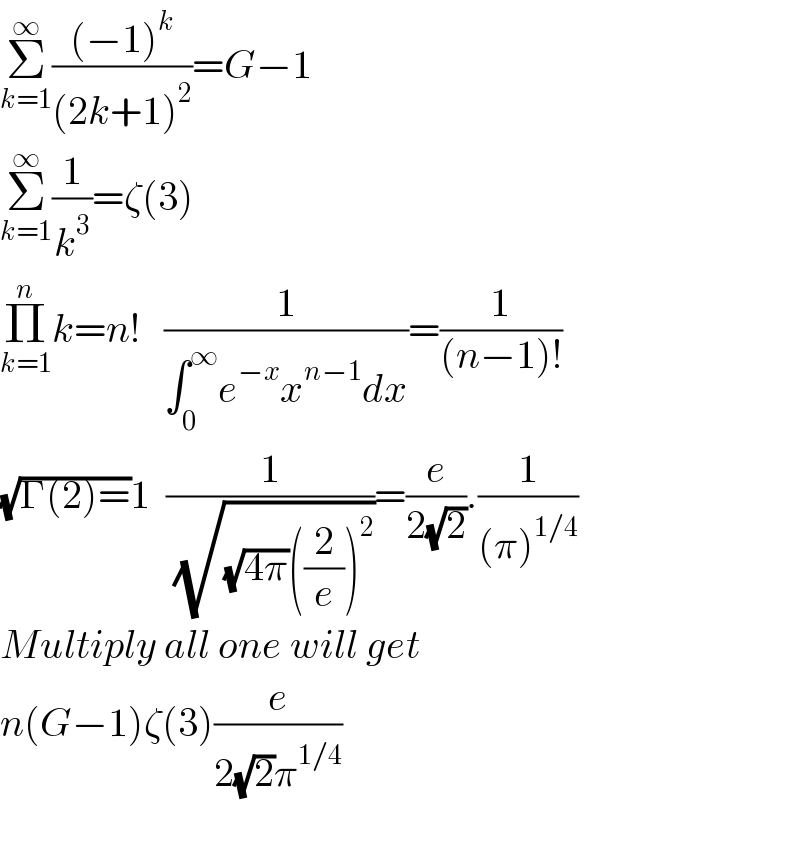
Question Number 143047 by 0731619 last updated on 09/Jun/21

Answered by JDamian last updated on 09/Jun/21

$$\Sigma\frac{\mathrm{1}}{{k}^{\mathrm{3}} }\:\:\mathrm{is}\:\mathrm{unknown} \\ $$
Commented by ArielVyny last updated on 09/Jun/21

$${but}\:{converge} \\ $$
Answered by Dwaipayan Shikari last updated on 09/Jun/21

$$\underset{{k}=\mathrm{1}} {\overset{\infty} {\sum}}\frac{\left(−\mathrm{1}\right)^{{k}} }{\left(\mathrm{2}{k}+\mathrm{1}\right)^{\mathrm{2}} }={G}−\mathrm{1} \\ $$$$\underset{{k}=\mathrm{1}} {\overset{\infty} {\sum}}\frac{\mathrm{1}}{{k}^{\mathrm{3}} }=\zeta\left(\mathrm{3}\right) \\ $$$$\underset{{k}=\mathrm{1}} {\overset{{n}} {\prod}}{k}={n}!\:\:\:\frac{\mathrm{1}}{\int_{\mathrm{0}} ^{\infty} {e}^{−{x}} {x}^{{n}−\mathrm{1}} {dx}}=\frac{\mathrm{1}}{\left({n}−\mathrm{1}\right)!} \\ $$$$\sqrt{\Gamma\left(\mathrm{2}\right)=}\mathrm{1}\:\:\frac{\mathrm{1}}{\:\sqrt{\sqrt{\mathrm{4}\pi}\left(\frac{\mathrm{2}}{{e}}\right)^{\mathrm{2}} }}=\frac{{e}}{\mathrm{2}\sqrt{\mathrm{2}}}.\frac{\mathrm{1}}{\left(\pi\right)^{\mathrm{1}/\mathrm{4}} } \\ $$$${Multiply}\:{all}\:{one}\:{will}\:{get} \\ $$$${n}\left({G}−\mathrm{1}\right)\zeta\left(\mathrm{3}\right)\frac{{e}}{\mathrm{2}\sqrt{\mathrm{2}}\pi^{\mathrm{1}/\mathrm{4}} } \\ $$$$ \\ $$
